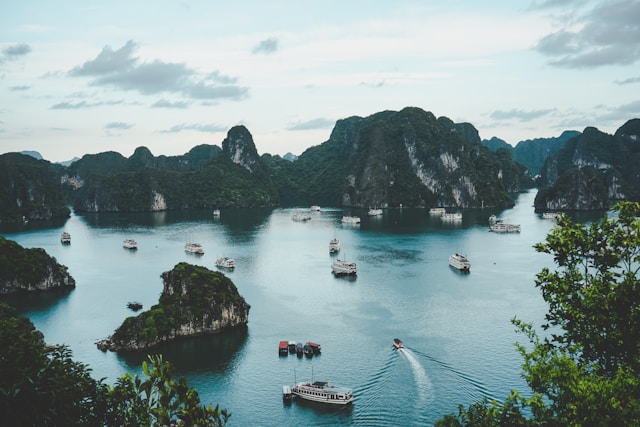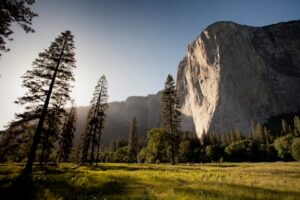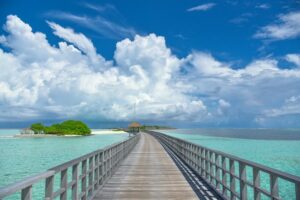The concept of freedom of movement manifests in profoundly different ways. For some, it is the raw, physical liberty of ascending a mountain peak to survey the sprawling landscape below. For others, it materializes as the legal right to cross international borders, unhindered by bureaucratic visa requirements. To explore this dichotomy, we can examine two powerful but disparate tools for travel and discovery: the Sawnee Mountain Preserve and a Vanuatu passport. These examples illuminate how the universal desire for new experiences can be satisfied through entirely different means, one rooted in immediate, physical challenge and the other in abstract, global access.
The Sawnee Mountain Preserve in Georgia, USA, delivers a classic and visceral experience of connecting with nature. This protected land beckons outdoor enthusiasts to immerse themselves in a tangible environment. Its network of picturesque trails and stunning panoramic views establishes it as an ideal destination for a weekend escape. Here, freedom is a physical sensation—felt in the exertion of the climb, tasted in the fresh mountain air, and seen from the unrestricted vista at the summit of Indian Seats. This form of liberty is immediate, accessible, and requires no permission other than the will to explore.
The opportunities afforded by this natural sanctuary are centered on local tourism and physical activity, allowing individuals to disconnect from daily routines without the significant investments of time and money that international travel demands. The preserve offers a structured yet wild environment for personal challenge and relaxation. Before planning a visit, prospective adventurers can consider the range of available activities.
The preserve is meticulously managed to offer a variety of experiences catering to different fitness levels and interests. These options ensure every visitor can find their own path to freedom on the mountain:
- Hiking and Trail Running: Explore over 11 miles of trails, from gentle walks through the forest to strenuous climbs that reward with breathtaking views;
- Educational Programs: Visit the interactive visitor center to learn about the region’s unique flora, fauna, and geological history;
- Picnicking and Relaxation: Utilize specially designated areas for a family meal amidst nature, offering a peaceful respite from the urban environment;
- Photography and Birdwatching: Capture the stunning landscapes and spot native bird species from scenic overlooks.
This localized adventure allows people to reclaim their time and reconnect with their surroundings, proving that profound discovery does not always necessitate crossing a border.
Global Mobility: A World of Access with a Vanuatu Passport
A Vanuatu passport provides an entirely different dimension of freedom. This Pacific island nation offers a Citizenship by Investment (CBI) program, one of a number of such programs globally that have gained prominence. The primary allure of Vanuatu citizenship is not necessarily access to its own tropical shores but the sweeping global mobility it confers upon its holder. The passport functions as a key to a world with fewer borders, opening doors to more than 100 countries without the prerequisite of obtaining a visa.
Holders of this travel document acquire a powerful tool for global business, leisure, and personal security. It unlocks the potential for spontaneous international trips and simplifies the logistics of long-term travel, effectively turning the planet into a vast reserve where airline routes are the trails and new cultures are the peaks. The strategic advantages become clear when examining the specific visa-free destinations it makes accessible.
This citizenship grants extensive travel privileges across several continents. For a global entrepreneur, a digital nomad, or a family seeking international experiences, these benefits can be transformative. The key regions available for visa-free entry include:
- Europe: Unrestricted movement throughout the 27 countries of the Schengen Area, including economic powerhouses like Germany, France, and Italy, in addition to access to the United Kingdom;
- Asia: Visa-free entry to major business and travel hubs such as Hong Kong, Singapore, and Malaysia;
- The Americas: Access to numerous island nations in the Caribbean, perfect for tourism or business networking.
In this context, a second passport is not merely a travel document. It is an instrument of strategic positioning, offering a hedge against regional instability and expanding an individual’s personal and economic freedoms on a global scale.
A Comparative Analysis: Two Paths to Discovery
While both Sawnee Mountain and a Vanuatu passport serve as gateways to new experiences, they operate on fundamentally different principles and cater to distinct aspirations. The choice between them depends entirely on an individual’s definition of exploration, their available resources, and their ultimate goals. The following table contrasts the core philosophies behind these two forms of freedom.
| Feature | Sawnee Mountain Preserve (Tangible Freedom) | Vanuatu Passport (Geopolitical Freedom) |
| Nature of Access | Physical, immediate, and sensory. | Legal, abstract, and potential. |
| Primary Barrier | Physical fitness and geographical proximity. | Financial investment and due diligence. |
| Scope of Travel | Localized within a defined natural area. | Global, spanning multiple continents. |
| Type of Reward | A sense of physical accomplishment and natural immersion. | Efficiency, opportunity, and global access. |
| Required Investment | Minimal (time, minor travel costs). | Significant (financial capital). |
This comparison highlights a crucial distinction: Sawnee Mountain offers a freedom that is experienced, while the Vanuatu passport provides a freedom that is possessed. The hiker on the mountain directly engages with their environment, their liberty defined by their physical presence. The passport holder possesses the potential for engagement anywhere in the world, their liberty defined by legal recognition.
Ultimately, the desire for freedom of movement is a universal human impulse. How one chooses to satisfy that impulse reflects their personal priorities and circumstances. For many, a weekend spent conquering a local peak offers a more profound sense of liberation than the abstract knowledge of visa-free access to a hundred nations. For others, the ability to seamlessly navigate the global landscape for business, family, or security is the ultimate expression of freedom. Neither approach is superior; they are simply different answers to the same fundamental question of what it means to be free to explore our world.


